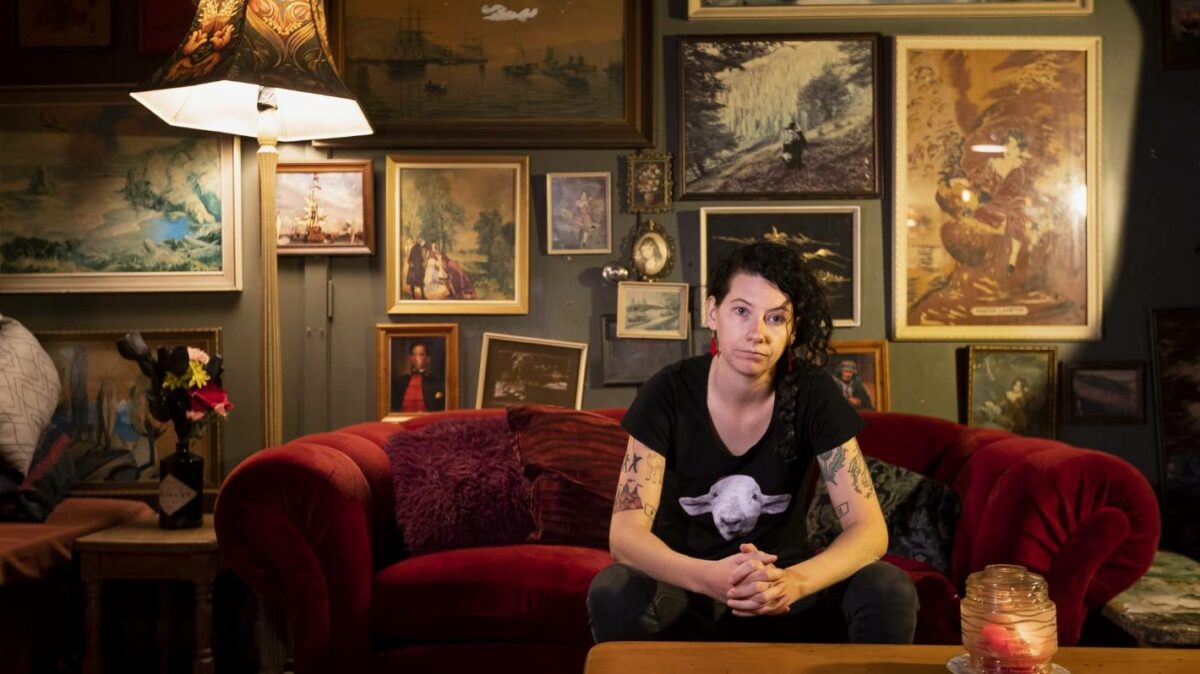Alden Williams/Stuff
Darkroom, managed by Feather Shaw, above, is one of three venues concerned about noise complaints. (File photo).
Three music venues in Christchurch fear they could be put out of business in the future because of noise complaints after work started on 18 new townhouses on a neighbouring property.
The venues, which are clustered on a short stretch of St Asaph St, are concerned about what could happen if new residents in the neighbourhood kick up a fuss over live music gigs.
The owners of Darkroom, Space Academy and 12 Bar, which between them host about 450 live music shows a year, have called on city councillors to change planning laws to protect them from noise complaints.
12 Bar music manager Kendra Walls told councillors last week that music venues were essential for the city’s cultural scene.
READ MORE:
* Bar owners say central Christchurch noise restrictions create clash of new apartments and vibrant nightlife
* Coronavirus: Music venues struggling post-Covid-19 lockdown
* The Kings Arms pledges to rock to its end amid complaints and cancellations
Supplied
Christchurch’s music crowd has been flocking to the Darkroom since it opened in late 2011.
“Our businesses are now faced with the prospect that the sound of live music will now be considered a disturbance to our new residential neighbours and under current council process we may be unable to operate as we have done for many years,’’ she said.
“Without spaces and opportunities for up-and-coming musicians they will likely leave Ōtautahi and look for work elsewhere.
“No artist arrives in the stadium as a fully formed superstar. Smaller venues like ourselves are the universities that grow world-class musicians.
“Many of the most loved and celebrated Christchurch musicians like Marlon Williams, Aldous Harding and Yumi Zouma have played some of their first gigs on our stages.
“Without the proper protection, Ōtautahi risks losing our creative community and cultural vibrancy.”
Supplied/Naomi Haussmann
Space Academy on St Asaph St hosts about three live music events a week.
Taylor MacGregor, from Save Our Venues, which raises awareness about the plight of small venues, said planning rules should be changed to create a special zone for the three venues with different noise standards.
He said new housing developments near live music venues should have higher sound insulation standards.
“These three venues have created a little precinct of their own. That is where we can start looking at planning measures to put them into the design of the city,’’ MacGregor said.
“That can benchmark the amount of sound a venue can make and so when residents move in they can know there’s a level of noise to be expected.
“We want people to live in cities and we want cities to be vibrant places. We want both things to co-exist.”
Supplied/Naomi Haussmann
Space Academy has been operating on St Asaph St since 2015.
Space Academy owner Richard Barnacle said they were not consulted about the new townhouses, and that the first they heard of the development was when they saw the houses for sale off-plan on TradeMe.
“It feels disappointing that we were not consulted,’’ he said.
“It feels like there is a very significant chance that our ability to operate will be affected and this could have been mitigated far earlier in the process.”
Barnacle said work had started to clear the site for the new townhouses and they could be completed by the end of next year.
Council staff were unable to immediately respond to questions about whether music venues should be protected from noise complaints
After Walls presented to councillors on Thursday, councillor Sara Templeton asked for council staff to present advice on how to “mitigate the issue”. Mayor Phil Mauger backed the request.
